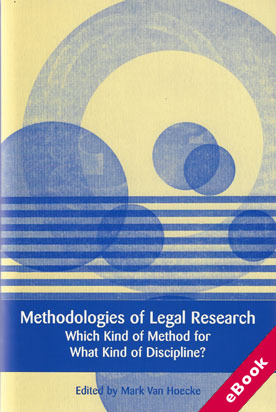
The device(s) you use to access the eBook content must be authorized with an Adobe ID before you download the product otherwise it will fail to register correctly.
For further information see https://www.wildy.com/ebook-formats
Once the order is confirmed an automated e-mail will be sent to you to allow you to download the eBook.
All eBooks are supplied firm sale and cannot be returned. If you believe there is a fault with your eBook then contact us on ebooks@wildy.com and we will help in resolving the issue. This does not affect your statutory rights.
Until quite recently questions about methodology in legal research have been largely confined to understanding the role of doctrinal research as a scholarly discipline. In turn this has involved asking questions not only about coverage but, fundamentally, questions about the identity of the discipline.
Is it (mainly) descriptive, hermeneutical, or normative? Should it also be explanatory? Legal scholarship has been torn between, on the one hand, grasping the expanding reality of law and its context, and, on the other, reducing this complex whole to manageable proportions. The purely internal analysis of a legal system, isolated from any societal context, remains an option, and is still seen in the approach of the French academy, but as law aims at ordering society and influencing human behaviour, this approach is felt by many scholars to be insufficient.
Consequently many attempts have been made to conceive legal research differently. Social scientific and comparative approaches have proven fruitful. However, does the introduction of other approaches leave merely a residue of 'legal doctrine', to which pockets of social sciences can be added, or should legal doctrine be merged with the social sciences? What would such a broad interdisciplinary field look like and what would its methods be? This book is an attempt to answer some of these questions.